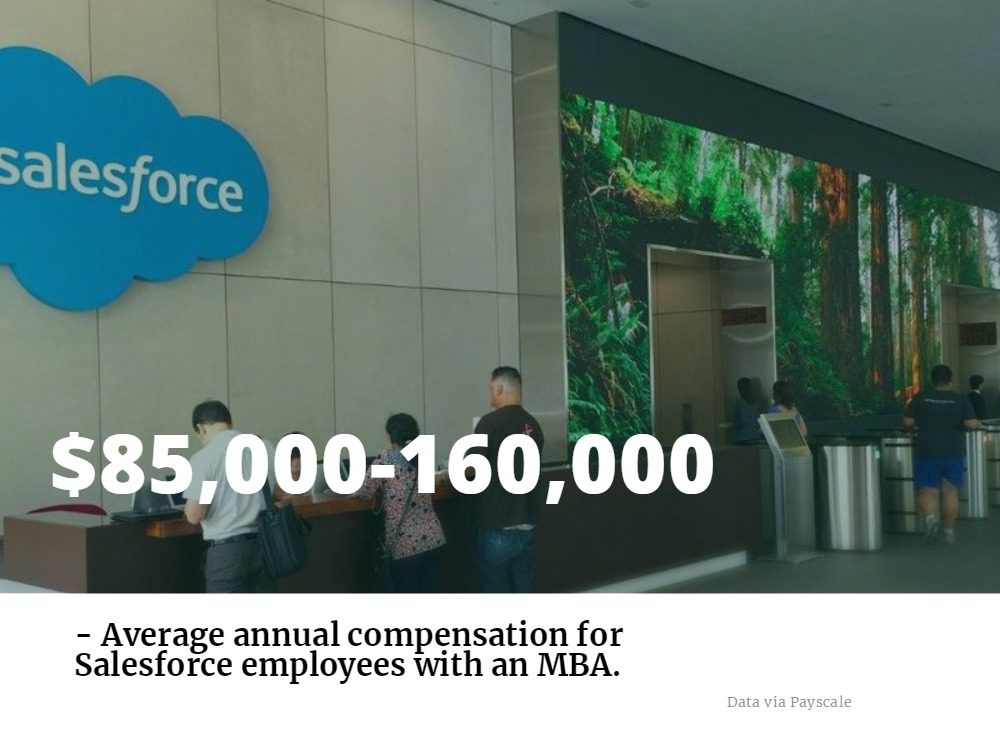How You Can Become an Implementation Consultant with an MBA

If you’re a natural problem solver who likes tackling large projects and managing teams, a role as an Implementation Consultant (IC), could be the perfect fit. With jobs in fields as varied as compliance, human resources, software development, healthcare and pharmaceuticals (among others) this is a top job for MBAs who want to put their management skills to work.

Companies like Oracle, Deloitte, IBM, PwC and McKinsey all frequently seek ICs to serve in various capacities, which is great news for MBAs who are just starting out or considering a career shift.
What is an Implementation Consultant?
In short, an IC is hired by an organization to ensure that a new system, tool, or process is used efficiently. According to an article describing the position on modernanalyst.com, “You [will be] chiefly responsible for understanding the client’s requirements and … addressing gaps so that the solution or product will meet your particular client’s needs.”
An IC is hired by a service provider (such as a tech company or a finance and consulting firm) to put the service into place and ensure that it runs as smoothly as possible. Often, the IC is brought in on a project by project basis so a fair amount of flexibility is required in the role. Also important are communication and “people skills,” as the IC will work with teams in various levels and divisions within a company.
A story on LinkedIn explored the role of the IC in the tech realm. The skills laid out, however, are applicable to any field that requires such a position. They are:
- Client Engagement
- Cross Domain Expertise
- Presentation and Training
- Cross Cultural Competence
The Implementation Consultant often acts as the ‘face’ of the service or product, so an understanding of a client’s needs and values is one of the most important aspects of this role.
Examples of scenarios in which a company brings in an IC are implementing new software, which requires configuring the product to the company’s needs and ensuring follow through after installation; assisting organizations with new corporate structures such as those that happen during mergers or acquisitions, and putting new policies and procedures in place after shifts in government regulations.
Implementation Consultant Salaries
Implementation Consultants can earn an average of $98,000 per year, according to Paysa data. This represents a range of about $85,000 in the 25th percentile of earning and $110,000 in the 75th percentile. The top 10 percent earn over $123,000.
Five of the highest paying companies for ICs are Leidos, BlackLine Systems Accounting Software, Salesforce, Omniture, and Kaplan K-12 Learning. The cities with the highest paid positions for the role are Los Angeles, San Francisco, Seattle, Philadelphia, and Boston.

A recent FirmsConsulting.com article says it best regarding the need for good ICs:
“No matter how good a firm is, they can never predict all the problems with implementing a strategy.”
Getting Started
Among the skills required to become an effective Implementation Consultant are project management and general management, along with analytics. While many undergraduate degrees with a business or information systems focus can get your foot in the door, an MBA may push you to the top of the list of desirable hires.
An MBA with a consulting, project management, or analytics focus is ideal for a future in Implementation Consulting. As previous articles have covered, Chicago Booth, MIT Sloan, Columbia Business School, and Northwestern Kellogg, are all considered leaders of the pack of feeder schools to top consulting firms.
Project management education can also help earn a way into the role. Penn State’s Smeal College of Business‘ program is one of the top in the field, as are those at Lehigh University College of Business and Economics, Georgetown University McDonough School of Business, and Boston University’s Questrom School of Business.
Friday News – Booth Expands London Campus, Berkeley Haas MBAs Explore Pay Gap, and More

Let’s take a look at some of the biggest stories from this week, including Chicago Booth London expanding.
Chicago Booth Expands Presence in Europe with new Facility in London – Chicago Booth Newsroom
University of Chicago’s Booth School of Business will be expanding its London campus, the center of which will be a newly constructed building adjacent to the Museum of London and St. Paul’s Cathedral.
The move from the current campus in the Financial District will be complete by spring 2020. The new location will serve as the home of the Booth Executive MBA Europe program, as well as various events, seminars, and conferences. Madhav Rajan, Dean and Professor of Accounting at Chicago Booth, says, “Our campus will be located in the heart of the City, in a newly developed neighborhood that showcases the best of London. I expect this will serve as a vibrant home for our faculty, staff, and students, and as a welcoming venue to host our external community of alumni, prospective students, and corporate and government partners.”
The 44,000 square-foot building will be comprised of two executive style multi-tiered classrooms, open meeting areas, and flexible event space. Booth’s European campus has been active since 2005, and was previously located in Barcelona, Spain.
For more on the new Chicago Booth London campus, click here.
Georgetown McDonough MBA Students Consult for WMATA to Improve Metro’s Image as Transit Provider, Employer – McDonough School of Business News
Georgetown University McDonough School of Business second year MBAs recently met some tough challenges—encouraging ridership on DC’s Metro, along with presenting the agency as an appealing employer.
As part of a recently redesigned core course, Managing the Enterprise, students embarked upon a seven week consulting study called The Metro Challenge. Finalists pitched their ideas to WMATA executives, who selected the most workable solution to the problems that they presented.
Practice in Management Professor Nick Lovegrove says, “In management courses, which tend to be a bit abstract, it really helps students to collaborate with an organization to provide a sense of reality … The fact that the WMATA is on the cusp of the public and private sectors means the issues they face are classic Washington issues.”
Practice in Management Professor Nick Lovegrove says, “In management courses, which tend to be a bit abstract, it really helps students to collaborate with an organization to provide a sense of reality … The fact that the WMATA is on the cusp of the public and private sectors means the issues they face are classic Washington issues.” The organization manages a $3.2 million budget, along with roughly 13,000 employees.
One winning team suggested a greater presence of technology such as smart apps to improve both employee and customer experience, while the other suggested mentorship programs and employee exchange programs to enhance operations. For more on the case study, click here.
Amir Yaron, Professor of Finance, Awarded Prestigious Stephen A. Ross Prize for Landmark Paper – Wharton News
Amir Yaron, Professor of Finance at the Wharton School, and Ravi Bansal, J.B. Fuqua Professor of Finance and Economics at Duke University have been recognized with the Stephen A. Ross Prize for their research paper, “Risks for the Long Run: A Potential Resolution of Asset Pricing Puzzles.”
The $100,000 Ross Prize is a bi-annual award given to those who have made significant contributions to research in financial economics. Yaron and Ransal’s paper, which examines the drivers behind movements in asset pricing movements along with factors that determine expected returns on financial assets, is the sixth winner of the prestigious award. It is given by The Foundation for Advancement of Research in Financial Economics (FARFE), which serves as a bridge between theory and practice in the field.
Lars Hansen, Professor of Economics at the University of Chicago and Winner of the 2013 Nobel Prize in Economics, says of the paper, “This truly innovative paper … added an intriguing new perspective to asset pricing theory.”
You can read here for more on the paper and on the FARFE.
MBA Students Fight the Gender Pay Gap—One Offer at a Time – Berkeley Haas Student News
Two Berkeley Haas MBAs, Christina Chavez (’19) and Jack Anderson (’19), have decided to do their part for gender equity in pay through their work with the Haas Gender Equity Initiative.
Chavez, who will work at Google after graduating, discovered just how large the pay gap was when she joined an online compensation board called Blind. “People were posting their data, and we started saying ‘whoa’ there’s some major differences in how our colleagues are getting paid,” she says.
This realization prompted her and Anderson to set up a spreadsheet in which they and their classmates could share their earnings data. The students transformed this data into the Haas Wage Gap Infographic, which showed that the wage gap was closing, with women earning 96 cents of every male dollar. Alumni with over 10 years of experience, however, showed a much wider pay difference.
Assistant dean of MBA Career Management and Corporate Partnerships, Abby Scott, says, “I don’t think that we know the real cause of the long-term pay gap, but we are advising students to make sure they’re negotiating salary and thinking beyond compensation—and we speak frequently to women about both the importance of negotiation and taking on leadership roles.”
You can read here for more on the Gender Equity Initiative at Haas.
Shared Space Under Pressure: Business Support for Civic Freedoms and Human Rights Defenders – NYU Stern News & Events
On Monday, April 8, the Stern Center for Business and Human Rights hosted the Shared Space Under Pressure event, with the aim of discovering how companies can best support civic freedom and human rights in their practices.
Speakers addressed the standards by which organizations can improve their approaches to these issues, and also the outcomes when business leaders do not take them into account.
The panel included Stern Professor of Ethics and Finance Michael Posner, Bennett Freeman, Principal author of “Shared Space Under Pressure”; Principal, Bennett Freeman Associates LLC; Deputy Assistant Secretary for Democracy, Human Rights and Labor from 1999-01; and Bobbie Sta. Maria, Director for Labour Rights and Asia, Business & Human Rights Resource Center.
For more, visit Stern’s event page.
